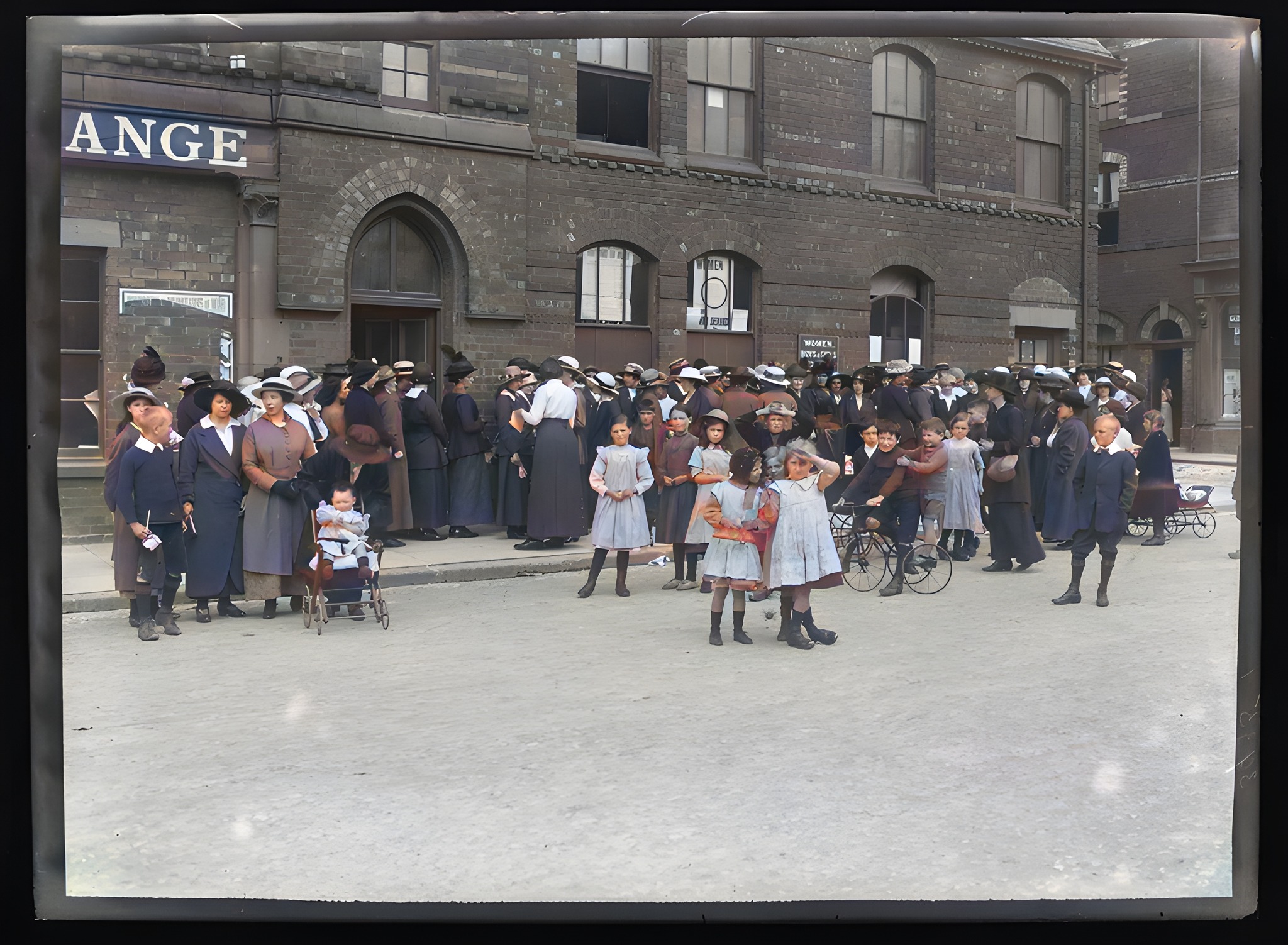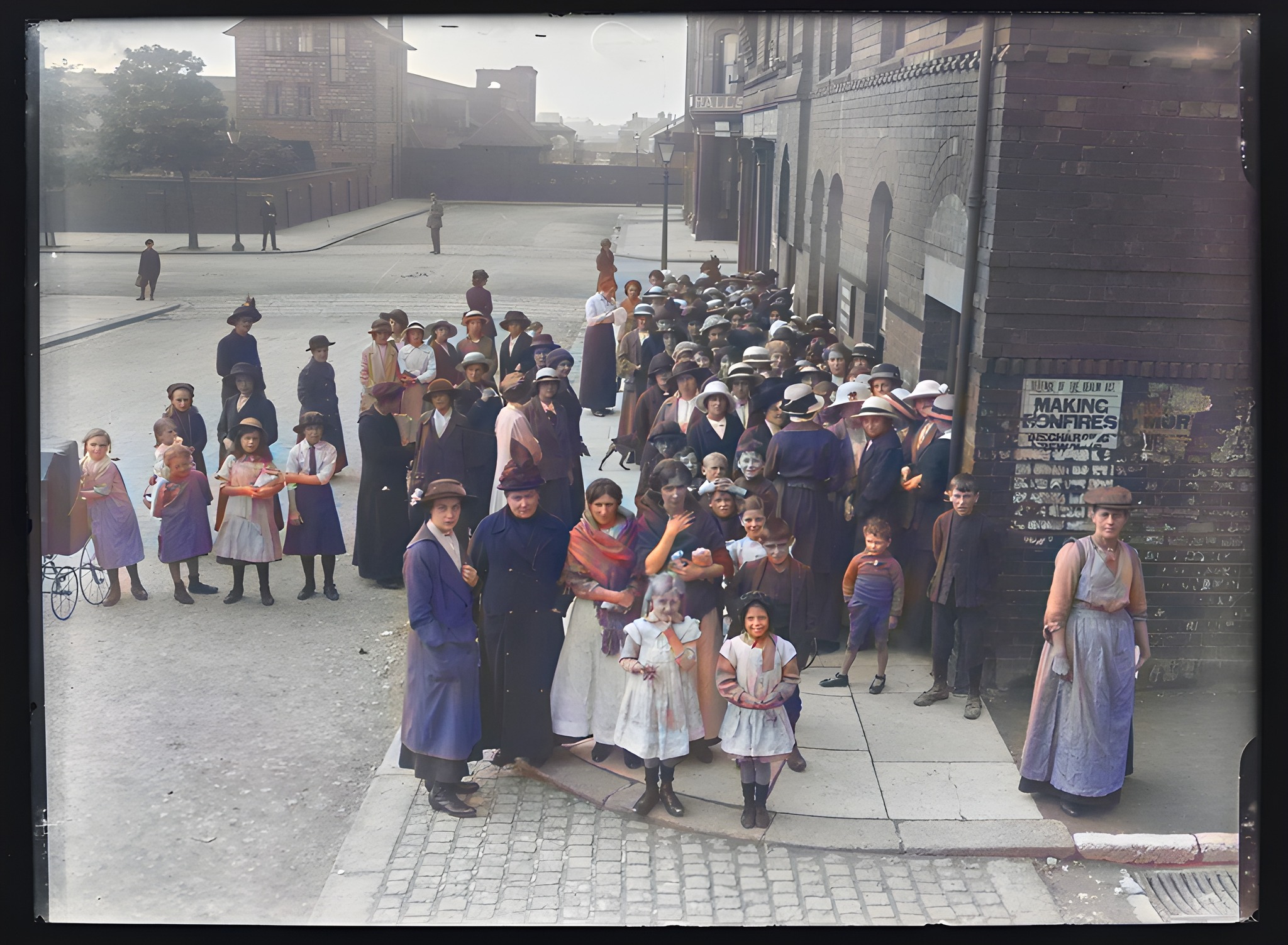 >
>
 >
>
Shipyard Sirens: Barrow's Bold Brigade Barrow-in-Furness, 1917. The air, thick with the tang of salt and coal dust, vibrated with a different kind of energy. The docks, once a testosterone-fuelled cacophony of clanging hammers and roaring engines, now hummed with a surprising new rhythm – the rhythmic clang of metal on metal and the infectious peal of female laughter. The men were off fighting the Kaiser (#WW1), leaving a gaping hole in the shipyard that needed plugging. Enter a brigade of bold broads, ready to answer the call. #BarrowWWI #WomenWarWorkers #NelsonStreet A young woman with eyes that mirrored the steely glint of the shipyard cranes adjusted the worn satchel at her hip. Gone were the days of leisurely strolls sketching the industrial landscape, the rough texture of charcoal beneath her fingertips. Today, her purse held not pencils but a quiet determination to defy expectations. The call for "women war workers" had echoed through the town, carried on the brisk sea wind, and she, fuelled by a fire that belied her years, was ready. Across from her stood another woman, her posture regal despite the chipped nail polish peeking from beneath her worn leather gloves. A former governess, she was no stranger to taming chaos. Perhaps unruly machines wouldn't be much tougher than rambunctious children, she thought with a glint of mischief in her eye, the scent of lavender water clinging faintly to her clothes. The wait at the Nelson Street Labour Exchange stretched on. The women shuffled their feet on the cold, stone floor, the air heavy with the smell of damp wool and anxious anticipation. A propaganda poster displayed a woman with muscles that could shame a sailor, the caption blaring "Britain Needs YOU!" in bold red letters. The young woman squared her shoulders, a spark igniting in her gaze. Britain did need them, and they were ready to step up. Finally, their turn arrived. A gruff man with a handlebar moustache that rivalled a walrus eyed them sceptically. "Shipyard, eh? Not for dainty tea sippers," he rumbled, his voice rough as gravel. The young woman met his gaze with a steely glint. "We're not here for tea breaks, mister," she declared, her voice laced with a quiet strength that echoed in the high-ceilinged hall. The man, surprised by their resolve, grunted and stamped their cards with a resounding thud – their passports to a world once dominated by men. Stepping out onto Nelson Street, the women clutched their cards, the thin paper feeling fragile yet significant in their hands. The shipyard, a maze of metal and clamour, awaited. The piercing screech of metal and the roar of the furnaces filled the air. The challenges would be immense, but these women, Barrow's bold brigade, were ready to prove their mettle. They were no longer bystanders; they were the unseen heroes, the backbone of the town, keeping Britain afloat with grit, laughter, and a whole lot of girl power.